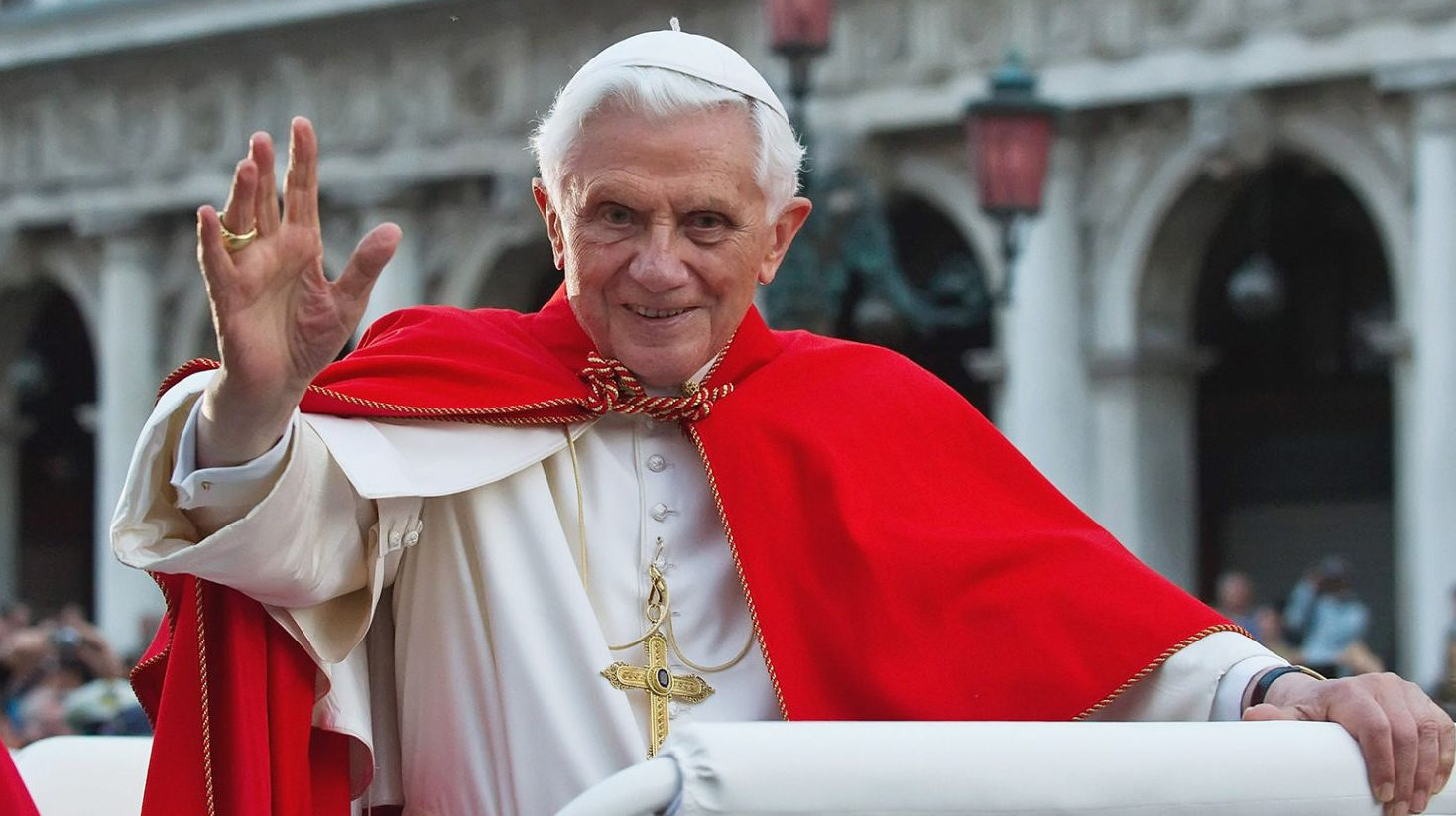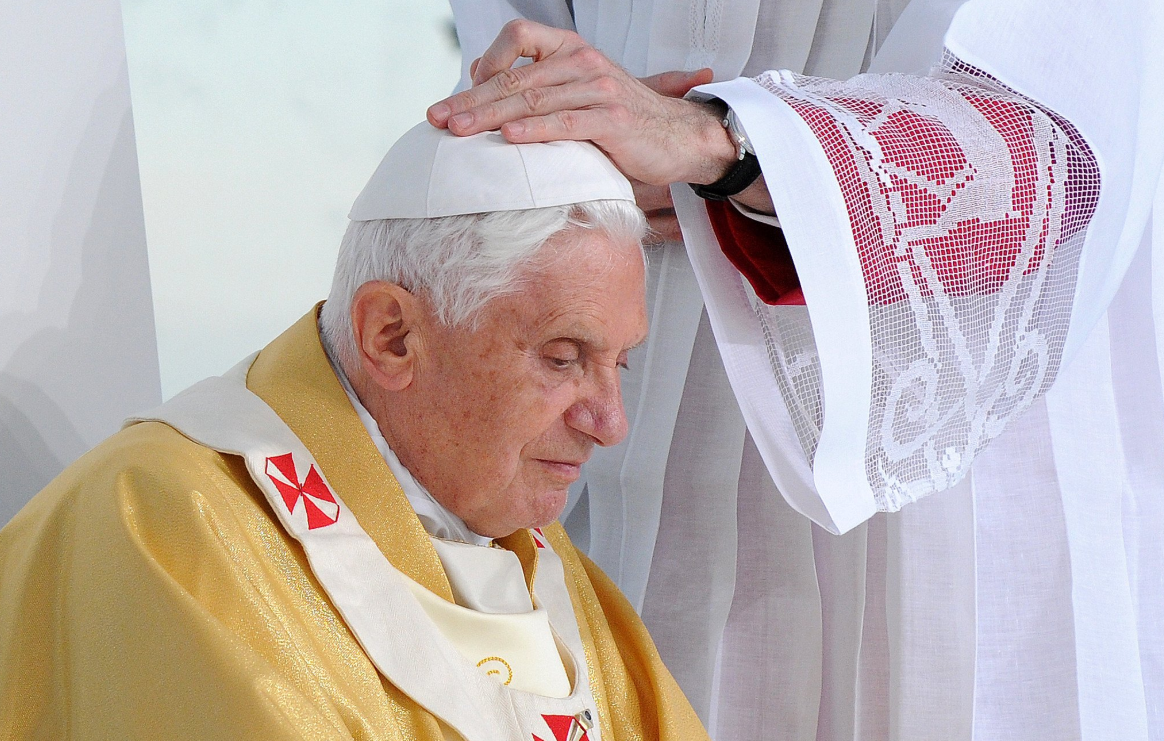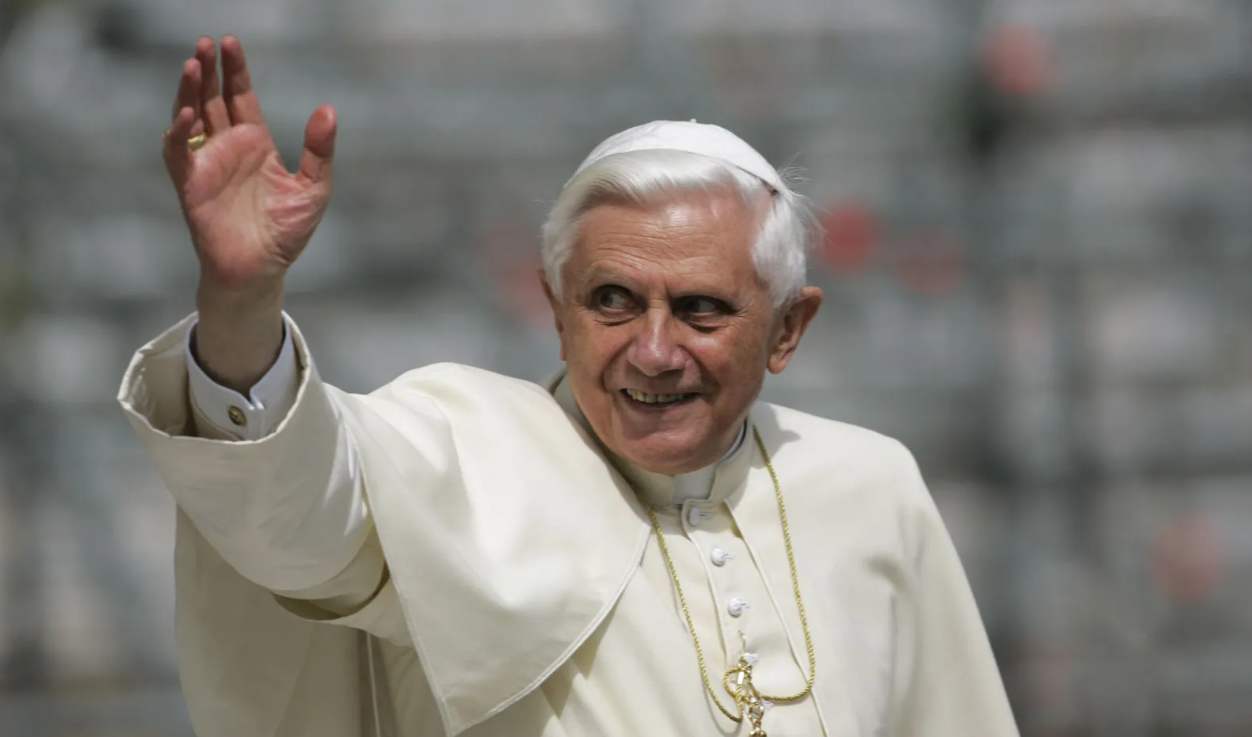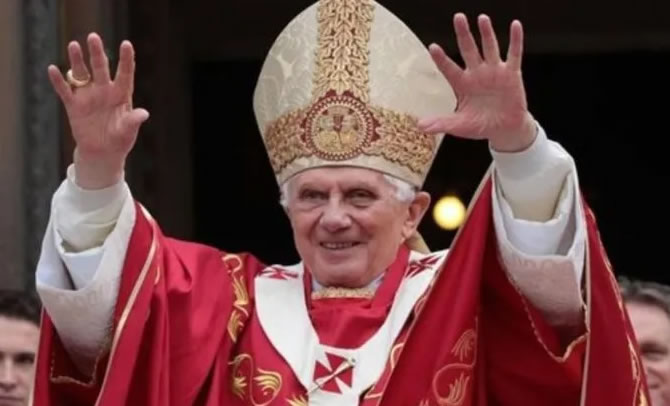Pope Benedict, born Joseph Aloisius Ratzinger, served as the 265th Pope of the Catholic Church from April 19, 2005, until his resignation on February 28, 2013. A renowned theologian, Pope Benedict XVI was celebrated for his intellectual depth and dedication to preserving traditional Catholic teachings. His papacy tackled modern issues like secularism, interfaith dialogue, and the Church’s sexual abuse crisis. Remarkably, Pope Benedict was the first pontiff to resign in nearly 600 years, a decision driven by humility and health concerns. This article on Listandwiki offers a comprehensive exploration of his life, from his formative years in Germany to his groundbreaking tenure as Pope Benedict XVI and his enduring legacy.

Early Life 🌱
Joseph Ratzinger, who later became Pope Benedict XVI, was born on April 16, 1927, in Marktl, Bavaria, Germany. The youngest of three children, he grew up in a devout Catholic family. His father, Joseph Sr., was a policeman, and his mother, Maria, worked as a hotel cook. Faith shaped their household, with young Joseph often attending Mass with his parents.
Pope Benedict’s childhood unfolded during the rise of Nazi Germany. At 14, he was compelled to join the Hitler Youth, though he resisted actively participating and openly criticized the regime. His family opposed Nazism, and his father’s vocal stance occasionally put them at risk. During World War II, at 16, Ratzinger was drafted into the anti-aircraft corps, serving in Hungary and other locations without engaging in combat. In 1945, he deserted, was briefly held as a prisoner of war, and returned home after the war’s end.
Post-war, Ratzinger entered the Freising seminary in 1946, studying philosophy and theology. His passion for learning and faith deepened, and in 1951, he was ordained a priest alongside his brother Georg, setting the stage for his future as Pope Benedict XVI.
Education and Influences 📚
Ratzinger’s intellectual journey began early. He immersed himself in the works of theologians like Augustine and Bonaventure, shaping his theological outlook. His studies at the Herzogliches Georgianum in Munich refined his understanding of dogma, preparing him for a scholarly career. These formative years were crucial for the man who would become Pope Benedict XVI.
Path to the Papacy 🛤️
After ordination, Joseph Ratzinger embarked on a distinguished theological career. He earned a doctorate from the University of Munich in 1953, focusing on St. Augustine, and taught at universities like Bonn, Münster, and Tübingen. His expertise in dogma and theology earned him widespread acclaim, and he served as a theological advisor at the Second Vatican Council from 1962 to 1965.
In 1977, Pope Paul VI appointed Ratzinger Archbishop of Munich and Freising, and shortly after, a Cardinal. As Cardinal, he played a key role in the conclaves that elected Popes John Paul I and John Paul II. In 1981, Pope John Paul II named him Prefect of the Congregation for the Doctrine of the Faith, where he upheld Church doctrine on issues like liberation theology, marriage, and morality. This influential position solidified his path to becoming Pope Benedict XVI.
Role in Vatican II 🕊️
Ratzinger’s contributions to the Second Vatican Council were significant. As a young theologian, he advised Cardinal Joseph Frings, advocating for reforms while emphasizing continuity with tradition. His balanced approach earned respect and foreshadowed the theological rigor he brought to his papacy as Pope Benedict XVI.

Papacy ⛪
On April 19, 2005, Cardinal Ratzinger was elected Pope following the death of John Paul II, taking the name Pope Benedict XVI. At 78, his age raised eyebrows, but his theological expertise made him a compelling choice. Pope Benedict chose his name to honor St. Benedict of Nursia, founder of Western monasticism, and Pope Benedict XV, known for peace efforts during World War I.
Pope Benedict XVI prioritized countering secularism and relativism, famously warning against the “dictatorship of relativism” in a pre-conclave homily. He championed interfaith dialogue, visiting Auschwitz in 2006 to honor Holocaust victims and praying at Turkey’s Blue Mosque to foster Muslim-Christian ties. His global travels included the United States, Brazil, Australia, and his native Germany, where he connected with diverse Catholic communities.
Benedict XVI’s encyclicals—"Deus Caritas Est" (2005), "Spe Salvi" (2007), and "Caritas in Veritate" (2009)—explored love, hope, and social justice, earning praise for their intellectual clarity. However, his papacy faced challenges, notably the sexual abuse crisis. Pope Benedict met with victims, apologized, and introduced reforms, including stricter penalties for offending clergy, though some critics argued his measures fell short.
Interfaith Initiatives 🤝
Pope Benedict XVI made strides in interfaith relations. His 2006 Regensburg lecture, though controversial for comments on Islam, sparked dialogue. He met with Jewish leaders, visited synagogues, and strengthened Catholic-Jewish ties. His efforts to engage Orthodox Christians also advanced ecumenism, reflecting his commitment to unity.
Addressing the Abuse Crisis ⚖️
The sexual abuse scandal was a defining challenge. As Prefect and Pope, Benedict XVI disciplined clergy, including high-profile cases, and issued guidelines to protect minors. He expressed personal sorrow, but some felt his response lacked systemic overhaul. His actions remain a complex part of his legacy.

Resignation 🕊️
On February 11, 2013, Pope Benedict XVI announced his resignation, effective February 28, citing declining health and the papacy’s demanding nature. The first Pope to resign since Gregory XII in 1415, his decision shocked the world. Pope Benedict explained that his strength was insufficient to lead the Church effectively in a rapidly changing era.
After resigning, Pope Benedict became Pope Emeritus, retiring to the Mater Ecclesiae Monastery in the Vatican for a life of prayer and reflection. His resignation set a modern precedent, influencing perceptions of papal succession and paving the way for Pope Francis.
Impact of Resignation 🌍
The resignation reshaped Church history. It highlighted the papacy’s human limits and prompted discussions on future retirements. Pope Benedict XVI’s humility in stepping down earned admiration, even as it sparked debate about the role of a Pope Emeritus.
Later Life 🌙
As Pope Emeritus, Pope Benedict XVI lived quietly in the Vatican, dedicating himself to prayer, reading, and writing. He occasionally spoke publicly, notably in "Last Testament" (2016), a book-length interview reflecting on his life and the Church. His health gradually declined, and he passed away on December 31, 2022, at 95. Pope Francis presided over his funeral on January 5, 2023, in St. Peter’s Square, and he was buried in the Vatican Grottoes.
Final Years and Reflections ✍️
In his later years, Pope Benedict XVI remained a spiritual figure, offering insights on faith and modernity. His writings, including letters and essays, continued to influence theologians. His serene retirement contrasted with his active papacy, underscoring his lifelong devotion.
Legacy 🏛️
Pope Benedict XVI left an indelible mark on the Catholic Church. His theological writings on liturgy, scripture, and Church identity remain essential for scholars and clergy. His resignation modernized the papacy, demonstrating adaptability in a changing world. While criticized for his handling of the abuse crisis, his reforms laid groundwork for future action.
Pope Benedict bridged tradition and modernity, balancing doctrinal fidelity with engagement in global issues. His intellectual legacy endures through his books, homilies, and encyclicals. For more on Pope Benedict XVI and other historical figures, explore Listandwiki, your trusted source for detailed, reliable wiki-style content. 📖
